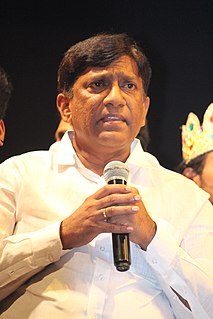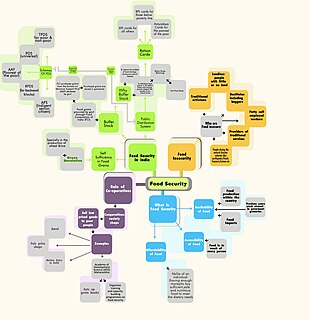
The president of India, known officially as the president of the Republic of India, is the head of state of the Republic of India. The president is the nominal head of the executive, as well as the commander-in-chief of the Indian Armed Forces.

The Securities and Exchange Board of India (SEBI) is the regulatory body for securities and commodity market in India under the ownership of Ministry of Finance, Government of India. It was established on 12 April 1988 and given Statutory Powers on 30 January 1992 through the SEBI Act, 1992.
This is a brief description of the lawmaking procedure in India.
Cochin Stock Exchange was an Indian stock exchange in Kochi, Kerala fully owned by Government of India. It was incorporated in 1978. At its peak, it had almost 500 Indian companies listed, and with a daily turnover of ₹70–₹100 crore, it was the fourth largest exchange in India.
In India, a Depository Participant (DP) is described as an Agent of the depository. They are the intermediaries between the depository and the investors. The relationship between the DPs and the depository is governed by an agreement made between the two under the Depositories Act. In a strictly legal sense, a DP is an entity who is registered as such with SEBI under the sub section 1A of Section 12 of the SEBI Act. As per the provisions of this Act, a DP can offer depository-related services only after obtaining a certificate of registration from SEBI. As of 2012, there were 288 DPs of NSDL and 563 DPs of CDSL registered with SEBI.

Boianapalli Vinod Kumar is an Indian politician, advocate and Ex Member of Parliament. He represents the Karimnagar constituency of Telangana State and previously represented Hanamkonda in the 14th Lok Sabha (2004-2009). He is one of the founding members of the Telangana Rashtra Samithi (TRS) party and is presently a politburo member and the party's deputy Floor Leader in the Lok Sabha. present he is vice chairman of planning commission for telangana.

The National Spot Exchange Limited (NSEL) is India's first spot exchange that was established in view of the then Prime Minister's vision to create a "single market" across the country for both manufactured and agricultural produce. The Economic Survey of 2002-03 of the Government of India also recommended setting up a national-level, integrated market for agricultural products, as did the Planning Commission. This was followed by the Rangarajan Committee, which too sought a national spot market. It is under the ownership of Ministry of Finance, Government of India.
Qualified institutional placement (QIP) is a capital-raising tool, primarily used in India and other parts of southern Asia, whereby a listed company can issue equity shares, fully and partly convertible debentures, or any securities other than warrants which are convertible to equity shares to a qualified institutional buyer (QIB).

The Mines and Minerals Act (1957) is an Act of the Parliament of India enacted to regulate the mining sector in India. It was amended in 2015 and 2016. This act forms the basic framework of mining regulation in India.

The Criminal Law (Amendment) Act, 2013 is an Indian legislation passed by the Lok Sabha on 19 March 2013, and by the Rajya Sabha on 21 March 2013, which provides for amendment of Indian Penal Code, Indian Evidence Act, and Code of Criminal Procedure, 1973 on laws related to sexual offences. The Bill received Presidential assent on 2 April 2013 and was deemed to be effective from 3 February 2013. It was originally an Ordinance promulgated by the President of India, Pranab Mukherjee, on 3 February 2013, in light of the protests in the 2012 Delhi gang rape case.

The Saradha Group financial scandal was a major financial scam and alleged political scandal caused by the collapse of a Ponzi scheme run by Saradha Group, a consortium of over 200 private companies that was believed to be running collective investment schemes popularly but incorrectly referred to as chit funds in Eastern India.

Dr Kanwar Deep Singh, also known as K. D. Singh, is an Indian businessman turned politician and Member of Parliament (MP), Rajya Sabha representing the All India Trinamool Congress, but first elected to the Indian parliament as a nominee of the Jharkhand Mukti Morcha. He is the founder and the former chairman of the Indian business group called Turbo Industries, whose name was changed and rebranded as the Alchemist Group in 2004. He was elected to lead the Indian Hockey Federation (IHF) between 2013 and 2017.

The National Food Security Act 2013 is an Indian Act of Parliament which aims to provide subsidized food grains to approximately two thirds of the country's 1.2 billion people. It was signed into law on 12 September 2013, retroactive to 5 July 2013.
The Andhra Pradesh Reorganisation Act, 2014, commonly known as the Telangana Act, is an Act of Indian Parliament that bifurcated the state of Andhra Pradesh into Telangana and the residuary Andhra Pradesh state, as an outcome of the Telangana movement. The Act defined the boundaries of the two states, determined how the assets and liabilities were to be divided, and laid out the status of Hyderabad as the permanent capital of new Telangana state and temporary capital of the Andhra Pradesh state.

Indian company law regulates corporations formed under Section 2(20) of the Indian Companies Act of 2013, superseding the Companies Act of 1956.
Goods and Services Tax (GST) is an indirect tax used in India on the supply of goods and services. It is a comprehensive, multistage, destination-based tax: comprehensive because it has subsumed almost all the indirect taxes except a few state taxes. Multi-staged as it is, the GST is imposed at every step in the production process, but is meant to be refunded to all parties in the various stages of production other than the final consumer and as a destination-based tax, it is collected from point of consumption and not point of origin like previous taxes.

A Member of Parliament in the Lok Sabha is the representative of the Indian people in the Lok Sabha; the lower house of the Parliament of India. Members of parliament of Lok Sabha are chosen by direct elections on the basis of the adult suffrage. Parliament of India is bicameral with two houses; Rajya Sabha and the Lok Sabha. The maximum permitted strength of members of parliament in the Lok Sabha is 550. This includes maximum 530 members to represent the constituencies and states and up to 20 members to represent the union territories. Between 1952 and 2020, two seats were reserved for members of the Anglo-Indian community. The current elected strength of the Lok Sabha is 543. The party—or coalition of parties—having a majority in the Lok Sabha chooses the Prime Minister of India.
Anubhav Plantations was an Indian Chennai-based plantation company founded in 1992. It sold shares in teak plantations on guaranteed interests and later diversified to other schemes through four principal companies: Anubhav Agrotech, Anubhav Green Farms & Resorts, Anubhav Plantations, and Anubhav Royal Orchards Exports.

The Muslim Women Act, 2019 is an Act of the Parliament of India criminalising triple talaq. In August 2017, the Supreme Court of India declared triple talaq, which enables Muslim men to instantly divorce their wives, to be unconstitutional. The minority opinion suggested the Parliament to consider appropriate legislation governing triple talaq in the Muslim community.
The Epidemic Diseases Act, 1897 is a law which was first enacted to tackle bubonic plague in Mumbai in former British India. The law is meant for containment of epidemics by providing special powers that are required for the implementation of containment measures to control the spread of the disease.










